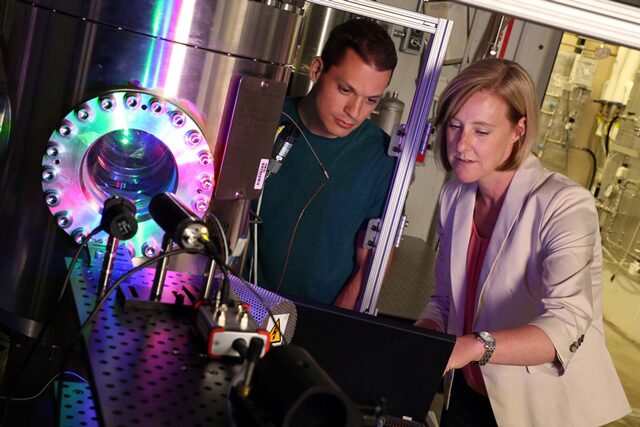Caroline Genzale was recently awarded the Army Research Office (ARO) Young Investigator Award, which includes a 3- year grant starting in Fall 2015. Her project, entitled, Spatially and Temporally Resolved Imaging of Primary Breakup in High-Pressure Fuel Sprays, will support the development of a novel high-resolution imaging diagnostic to study the mechanisms of atomization in high-pressure fuel sprays for diesel combustion engines.

Even after decades of diesel engine development and research, the fundamental mechanisms that control spray breakup and atomization at engine-relevant conditions are unclear. This lack of understanding leads to uncertainties in the fuel-air preparation process and resulting performance and emissions outcomes of the engine. Such knowledge is critical to Army initiatives focused on transitioning ground vehicle engines towards new fuel streams, including the Single-Fuel-Concept for streamlining fuel supplies across ground and air vehicles (JP-8), and the use of renewable fuels generated on-site in unstable deployment areas.
Revealing these mechanisms has been historically challenging because the temporal and spatial scales of fuel spray atomization lie beyond the capabilities of current imaging technologies. Diesel fuels are typically injected at velocities of 600-700 m/s, with atomized droplet sizes in the micron range. It is extremely challenging record an object that small while it is simultaneously moving that fast! Genzale’s approach leverages new high-power pulsed LEDs in multiple colors to record transient motion spectrally, eschewing conventional high-speed frame transfer operations used in high-speed cameras, and enabling sequential image capture within nanosecond timescales. High-magnification optics will simultaneously resolve liquid interface instabilities and droplet formation at the micron scale.
The U.S. Army Research Laboratory's Army Research Office (ARO) mission is to serve as the Army's premier extramural basic research agency in the engineering, physical, information and life sciences; developing and exploiting innovative advances to insure the Nation's technological superiority. Basic research proposals from educational institutions, nonprofit organizations, and private industry are competitively selected and funded.
